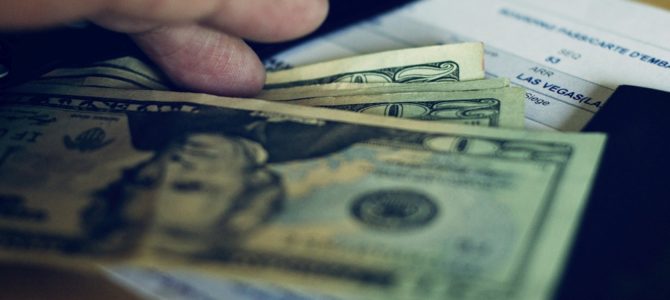
The Supreme Court handed down a 5-4 decision Thursday authored by Justice Anthony Kennedy and joined by Justice Ruth Bader Ginsburg. That is the sort of sentence that strikes fear in the hearts of conservatives, but this time, in South Dakota v. Wayfair, there is no need for panic.
The decision concerning how sales taxes are collected is one consistent with federalism and local control, and one that reverses a fifty-year-old error by the court that looked increasingly nonsensical in the age of online commerce. Don’t believe the hype: Wayfair poses no threats to small-government conservatives, nor does it represent a significant impairment to small businesses.
No New Taxes
The biggest misconception about Wayfair is that the court imposed new taxes on American consumers. This is completely untrue. For one thing: courts cannot impose taxes. Only legislatures may do that. All of the sales taxes at issue in the case were already imposed by the states in question — and 46 states do impose sales taxes (Delaware, New Hampshire, Oregon, and Montana are the exceptions). Nothing in the court’s decision changes those taxes by even a penny.
So why the fuss? Wayfair changed how those taxes may be collected. Before Thursday, the precedents in National Bellas Hess v. Illinois (1967,) Complete Auto Transit, Inc. v. Brady (1977,) and Quill Corp. v. North Dakota (1992) held sway. If you bought something from a store in your town and the state imposed a sales tax, the store collected that tax and forwarded it to the state government. That’s still true.
What used to be the case under Quill and its antecedents was that if you ordered something online from an out-of-state retailer with no presence in your state — even something identical to the thing in the first example — the state could not force that retailer to collect the tax. Instead, it was your responsibility at the end of the year to forward the tax on your out-of-state purchases to your state’s government.
Taxpayers routinely ignore this requirement, however, and without their participation the law has become a dead letter. It is so often ignored that websites often advertise their goods as being free of sales tax. Opponents of the Wayfair decision are not arguing for a tax to be eliminated; they are arguing for people to continue to be allowed to dodge it. For conservatives, especially, this is at odds with our typical position in favor of the rule of law. If the tax is too high, we should lobby our state legislatures to lower it, or even eliminate it.
Arguments against taxing all transactions equally are also wrong about on whom the ultimate burden of taxation falls. In a New York Times op-ed on Friday, Jessica Melugin of the Competitive Enterprise Institute said states could now reach “outside their borders to tax businesses in other states.” But this was already true, and for out-of-state businesses with even a tiny physical presence in the state — like a single salesman — this ruling changes nothing. The person mailing in the payment will change, but consumers ultimately bear the cost of the tax, just as they do in every tax anywhere in the supply chain.
Federalism And Local Control
The decision also restores the federalist arrangement that held sway before the Court first interfered in this decision fifty years ago. States decide how to pay for their governments, whether by user fees, income tax, property tax, sales tax, or some other method. Other than those things the Constitution explicitly bars, states are free to choose the combination of revenue measures that suits their voters. Federalism demands that states have the freedom to raise revenue as they see fit. Quill imposed the feds’ preference; Wayfair restores federal neutrality.
Before Wayfair, they effectively did so, imposing a system by which sales taxes on in-state purchases were easy to collect and those on out-of-state purchases were nearly impossible, effectively granting a subsidy to internet retailers. This judgment to administer taxation on purchases unequally was not something the state governments or their voters chose. Indeed, 41 states joined in an amicus brief arguing that the court should decide this case in South Dakota’s favor. This was a decision imposed on them by the federal government. Removing the restriction gives the states and their people back the power to govern themselves more freely and in accordance with our federal system.
The practical effect also serves to benefit people and their communities. The original understanding of the Commerce Clause likely had nothing to do with what we now call localism. If anything, it was the opposite, as it created a common market within the borders of the United States. Since then, it and other provisions have been interpreted to prevent states from granting an advantage to their own businesses’ products over those of other states. But the decision in Quill had the opposite effect, forcing states to make life harder on their own businesses. Buying something on Main Street cost you tax; buying it on the internet technically did, too, but no one could collect it.
Wayfair restores the balance and might help local businesses to better compete with internet giants. It also makes for a more honest system. Under Quill, every time you failed to report an out-of-state purchase to your state (and let’s face it, none of us reported them,) you were cheating on your taxes. That’s not a good look for a developed nation and, although it is rarely enforced, it is something any one of us could get audited for. We should have fewer and lower taxes in this country, but those taxes that we have, we should pay. Now that out-of-state retailers collect it for us, the average taxpayer will no longer be complicit in fraud.
The Court Corrects Its Own Error
People decrying the Wayfair decision as anti-democratic or the product of an activist judiciary are also wrong. Not only does the decision make possible the revenue choices of a supermajority of state legislatures, it also overrules no statute or regulation. The only thing it changes is a ruling of the Court in 1967.
Much of Chief Justice Roberts’s dissent focuses on stare decisis, the theory that once a case has been decided, that precedent controls in all similar cases. It is a good principle, one that provides certainty in the law and lets people know that principles control the law, not the whims of judges. But it is not and never has been an absolute rule. In cases like this one, where even the dissenters are hard-pressed to justify the precedent from Bellas Hess and Quill, they should not be afraid to revisit an old ruling, especially one where the changed circumstances of modern commerce make the original decision look even more ridiculous than it did in 1967.
Roberts suggests that Congress should be the one to fix the Court’s error and that their failure to do so is a choice to maintain the status quo. In this, he is not completely wrong, but the same could be said of the status quo before Bellas Hess. Congress has never seen fit to set the rules on out-of-state collection of state sales tax. That the Court did so once in 1967 does not mean it may not do so again in 2018. In fixing their error, the Court has returned the situation to what it was before they interfered. If any federal or state legislature wishes to change that, nothing in Wayfair stops them from doing so.
In the meantime, the Court has shown restraint and respect for the political branches by letting the states return to doing what they want with regard to tax collection. If the citizens of those states object, they should lobby their legislature, or else lobby Congress to act. More likely: neither thing will happen, because overturning Bellas Hess and Quill makes logical sense and returns this area of law to an even-handed federal system, as it was always intended to be.









